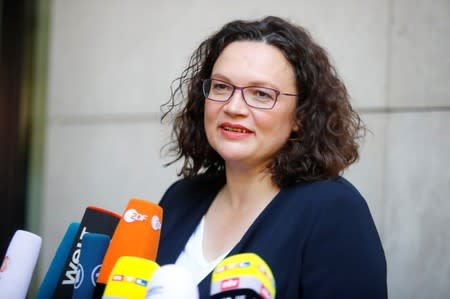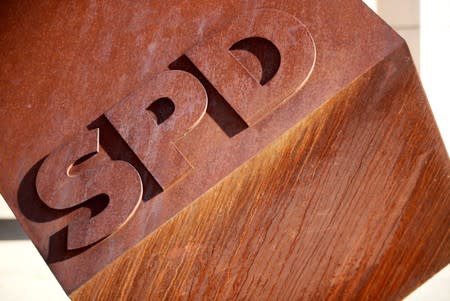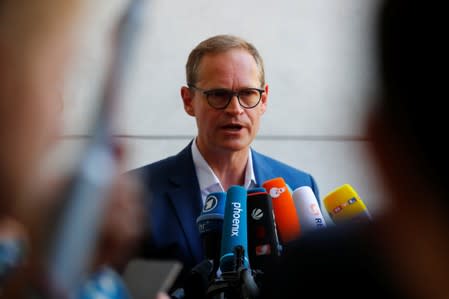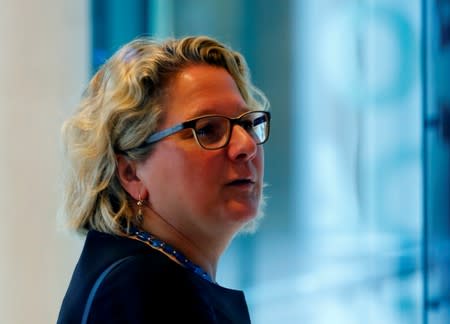Factbox - From Marx to Nahles: The rise and fall of Germany's SPD
By Thomas Escritt
BERLIN (Reuters) - Germany's Social Democratic Party (SPD), which helped shape modern Germany under a series of renowned chancellors, is facing one of the deepest crises in its history.
The SPD has provided three of Germany's post-war chancellors but its illustrious past has been eclipsed by a slump in support that led Andrea Nahles to resign as the party's first female leader on Monday.
Following are key facts about the SPD:
FORMATION
The SPD is Germany's oldest political party and traces its history back to Karl Marx, whose birth house in the western city of Trier it still owns and maintains.
Founded in 1863 as a radical workers movement, the party was central in pushing for the creation of Germany's pioneering universal pensions in the 19th century. It opposed rearmament before World War One.
WORLD WAR TWO
While conservatives and Communists were complicit in the rise of Adolf Hitler's National Socialists in the 1930s, the SPD resisted until the end, voting against confirming in power the man who would go on to unleash World War Two.
"They can take our freedom and our lives, but not our honour," said then leader Otto Wels. He died in Paris exile in 1939. Many of the party's leaders were murdered in concentration camps.
1970s HEYDAY
Willy Brandt, the party's most famous chancellor, survived the Nazis by fleeing to Norway. He led the party to its most emphatic victory, winning 46% of the vote in the 1972 election.
OSTPOLITIK
In a Europe that was still mistrustful of Germany, Brandt won hearts by falling to his knees in a gesture of atonement at the monument to Nazi Germany's massacre in the Warsaw Ghetto, and through his "Ostpolitik" policy of engaging with Communist Eastern Europe that helped bring about a Cold War thaw.
Brought down by scandal when it was revealed that one of his closest confidantes was an East German spy, Brandt was succeeded by Helmut Schmidt, whose Keynesian economics helped Germany weather the downturn after the 1973 oil shock.
HARTZ IV, IRAQ
Gerhard Schroeder, the SPD's third post-war chancellor, pushed through the "Harz IV" welfare reforms. These were unpopular at the time, but laid the ground for a decade-long expansion under conservative Chancellor Angela Merkel.
Internationally, Schroeder was best known for opposing the U.S.-led 2003 invasion of Iraq, and for his enduring friendship with Russian President Vladimir Putin.
The party has not done as well since, as voters looking for left radicalism deserted it for the Left party, while moderates switch their allegiance to the ecologist Greens. Now on 15% in some polls, the party vies with the far-right for third place.
(Reporting by Thomas Escritt, Editing by William Maclean)








